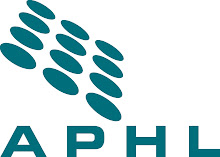By Peter Kyriacopoulos, Director of Public Policy, APHL
The Centers for Disease Control and Prevention (CDC) recently notified Scott Becker, APHL’s Executive Director, about a newly created office: the Office of Prevention Through Health Care (OPTH). This new office will enable CDC to more aggressively and effectively develop and disseminate policies that leverage the health care system to improve health through prevention. According to CDC, OPTH will coordinate health care activities across CDC programs and will lead engagement with external partners on health care issues.
There is no better way to achieve an immediate improvement in health through prevention than increased surveillance and detection of disease outbreaks. State and local laboratories performing tests of public health significance are on the frontline of this activity and are under extreme pressure to continue their exemplary performance because of the staffing reductions that have resulted from budget cuts caused by the economic downturn. Work on food safety, pandemic influenza, and other infectious diseases is imperiled because of these budget cuts.
An infusion of federal support for state and local public health workforce retention would produce an immediate high-value preventive intervention by preserving the much-needed laboratory professionals who are responsible for surveillance and detection on a daily basis. Improved surveillance and detection coupled with expedient delivery of that information through a robust laboratory informatics network would lead to a reduction in the instances of disease and reductions in the number of individuals seeking health care because of disease. It is hard to imagine a smarter engagement with the health system than by reducing the number of people it is struggling to serve. The positive implications for the payers, public and private, of this care are similarly obvious.
The corollary is also true, the path we are travelling with continued losses of state and local laboratory professionals coupled with the antiquated mechanisms for transmitting laboratory test orders and results can only lead to reduced surveillance and detection and increased incidents of disease that causes public and private payers to expend ever increasing amounts on the delivery of health care to increased numbers of people.
Friday, March 12, 2010
Subscribe to:
Post Comments (Atom)





No comments:
Post a Comment